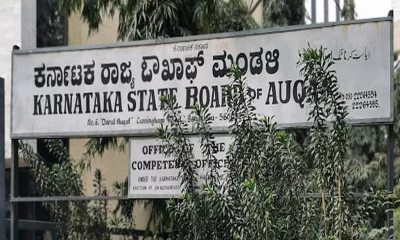SHASHWAT MISHRA – Mumbai Uncensored, 15 January 2022
2021 was a year full of buzz around cryptocurrency in India, apps coming up with private cryptocurrency(bitcoin), people investing in bitcoins, government twice was close to come up with a law banning all private cryptocurrency, but no material step was taken in this area. It becomes imperative to understand all about cryptocurrency and the article aims to give a detailed analysis on cryptocurrency, its challenges and the way forward.
What is cryptocurrency?
A cryptocurrency is a medium of exchange similar to a Rupee or any other currency. The difference is while a rupee or a dollar exists in a physical form which is a printed note, cryptocurrency is held in an electronic form based on a technology named blockchain. Blockchain is nothing but a decentralized ledger in an electronic form which contains “blocks” in other words transactions across a peer-to-peer network, which means without an involvement of a third party.
Bitcoin is the world’s best known cryptocurrency which is considered to be the largest in terms of market value followed by Ethereum. If we talk about how cryptocurrency works, it needs to be understood in the context of a fiat money (currency with authorized permission and regulation), for example a rupee is regulated by the Reserve Bank of India which ensures that the money in circulation is genuine and is recorded. In the context of a cryptocurrency, a chain of private computers execute this process and solve complex cryptographic puzzles, this is done to authenticate the transaction, this process is called mining.
TRADING IN CRYPTOCURRENCIES
To trade in cryptocurrency, one needs to first buy a cryptocurrency, there are two ways in which a cryptocurrency can be brought, firstly, you can buy crypto coin from someone and the second, is to mine your own cryptocurrency. Buying happens in either an exchange facilitated transaction or a peer-to-peer transaction. Talking in the context of India, the simplest way to trade in cryptocurrency is through one of the exchange and trading platforms which includes, WazirX, CoinDCX, CoinSwitch Kuber etc.
To trade in cryptocurrency by using INR, the user needs to register on one of the exchange platforms mentioned above, and complete a KYC process, then if the user is buying cryptocurrency for the very first time will need to load INR money in their wallet of their cryptocurrency exchange.
FRAMEWORK ACROSS COUNTRIES & INDIA
El Salvador has become the first country to recognize bitcoin as a legal tender, China on the other hand has imposed a complete ban on cryptocurrency. It becomes imperative to look at some of the other jurisdictions around the world and their regulatory framework regarding cryptocurrency.
In the United States, The federal government does not recognize cryptocurrency as a legal tender, the two major regulators i.e. US Securities and Exchange Commission (SEC) and Commodity Futures Trading Commission (CFTC) are playing catch up while regulating the digital currency market, their objectives are two fold, firstly, protecting the investing public and secondly, maintaining market stability.
In the United Kingdom, Her Majesty’s Revenue and customs department has not considered crypto assets as a currency. Furthermore, it has noted that cryptocurrency does not qualify to be any form of investment activity.
In Canada its regulator, Canada Revenue Authority (CRA) though does not recognize it as a fiat currency but treats it like a commodity used for payment and investment purposes and the same is subject to taxation.
Israel through its legislation, Supervision of Financial Services Law includes digital currency within the definition of financial assets. The Israel tax Authority demands 25% on profits made through exchange and trading of cryptocurrency.
India though has not come up with any policy or legislation either regulating or banning cryptocurrency, however, before the winter session of parliament last year there were conjectures that the government may come up with a law banning all private cryptocurrencies, but nothing concrete happened, which has led to uncertainty amongst investors in the Indian crypto market. The Reserve Bank of India (RBI) though, has given some hints as to what would a regulatory framework on cryptocurrency in India look like.
The RBI is expected to come up with Central Bank Digital Currency (CBDC) a digital currency that can be transacted using platforms based on blockchains and would be regulated by RBI. However, this is just a form of digital currency, but the broader question is what should be a comprehensive policy related to cryptocurrency? Mr. Hemant Batra a renowned public policy expert and a lawyer while speaking to Mumbai Uncensored has provided his detailed insight and expertise on the policy regarding cryptocurrency, he says, “public policy can be of two types, firstly, a policy which brings or initiates a reform in any sector or segment within the society and second, is a policy brought about to formalize a change which has already happened. The Indian cryptocurrency market has now become very big with involvement of billions of dollars in the market hence, it is now unattainable and irreconcilable for the government to completely ban all sorts of cryptocurrency and its trading and investment. India is absolutely ready to accept cryptocurrency with a regulatory system based on global requirements as per the guidelines issued by IMF (International Monetary Fund). Banning cryptocurrency will lead to damaging the financial statistics of all nations”
CONCERNS AROUND CRYPTOCURRENCY
The next aspect is the challenges that cryptocurrency puts forth before the policy makers, these can be termed as “macro” consequence of cryptocurrency. First aspect is the challenge related to the monetary policy, former RBI governor Duvvuri Subbarao speaking at a public forum has expressed his concerns on cryptocurrency and its impact on monetary policy according to him, cryptocurrency may erode central bank’s control over money supply, “Crypto is backed by algorithms and there is fear that the central bank might lose control over money supply and inflation management. There are also concerns that crypto will disrupt the monetary policy,” he said, “Crypto can jump capital controls; fiat money is linked to the reserve currency,” his indication was towards “stablecoins” whose value is tied to a fiat currency by maintaining equivalent reserves (“currency board” exchange rate regime).
The next challenge is fiscal, that is cryptocurrency being used as a tool for tax evasion as it would be very feasible for a crypto investor to invest his untaxed money in purchasing bitcoins and similar would be a case in money laundering wherein “proceeds of crime” could easily be invested in any of the cryptocurrency exchange and trading platforms. Mr. Batra on this point states, “FATF (Financial Action task force) and IMF have expressed their serious concern about this issue, there are certain sets of cryptocurrency that are based on very private blockchains wherein one cannot identify the nation from which such virtual currency is operating and there are cases investigated globally wherein there has been a direct link between financing illegal and terror activities through crypto exchanges. To tackle this scenario, the government has to introduce regulatory regimes not on the cryptocurrency but crypto service providers.”
On the point of cryptocurrency being a very lucrative investment avenue Mr. Batra says, “investment in government bonds and securities, SEBI controlled mutual funds, financial securities might take a hit as people will not take risk in investing smaller companies and thus, they will either invest in blue chip companies or in cryptos”. Thus, cryptocurrency in India has now become a major factor in the financial as well as the economic realm and now what is needed is a comprehensive regulatory framework which ensures investor protection as well as market stability of crypto. In the budget session scheduled to start from 30th January; the Union Budget will be presented on February 1st, the government is expected to come up with a law on cryptocurrency, it would be very interesting to see how the law is formulated.



 Health3 weeks ago
Health3 weeks ago


 Special Editions2 months ago
Special Editions2 months ago


 Special Editions1 day ago
Special Editions1 day ago


 Special Editions1 day ago
Special Editions1 day ago


 Special Editions1 day ago
Special Editions1 day ago















